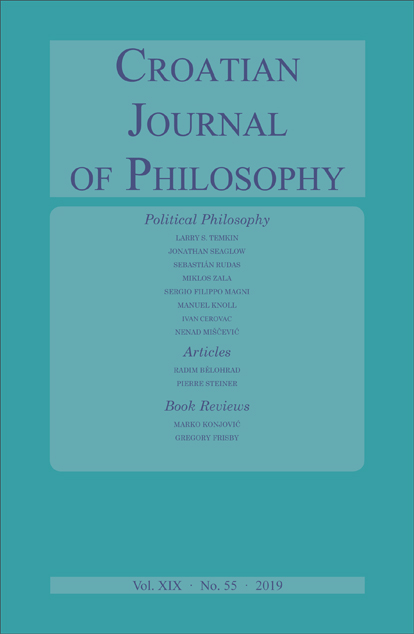Michael Walzer’s Republican Theory of Distributive Justice: “Complex Equality” as Equal Freedom from Domination
Michael Walzer’s Republican Theory of Distributive Justice: “Complex Equality” as Equal Freedom from Domination
Author(s): Manuel KnollSubject(s): Ethics / Practical Philosophy, Political Philosophy, Welfare systems, Politics and society
Published by: KruZak
Keywords: Republicanism; liberty; non-domination; equality; egalitarianism; tyranny;
Summary/Abstract: This article presents a republican interpretation of Michael Walzer’s theory of distributive justice and of his idea of complex equality. It demonstrates that Spheres of Justice is not only a defense of pluralism and equality (as the subtitle announces), but also of liberty or freedom. Like Quentin Skinner and Philip Pettit, Walzer understands liberty as nondomination. For Walzer, a just distribution of all social goods leads to a “complex egalitarian society” in which every citizen is equally free from domination and tyranny. Against alternative interpretations, this paper suggests that Walzer is indeed a political egalitarian and that complex equality should be interpreted as a simple equality of liberty or freedom. In the conclusion, the article argues that Walzer’s and Pettit’s versions of republicanism are complementary because they each illuminate the other’s blind spot and thus mutually fix each other’s particular shortcoming.
Journal: Croatian Journal of Philosophy
- Issue Year: XIX/2019
- Issue No: 55
- Page Range: 81-98
- Page Count: 18
- Language: English
- Content File-PDF

